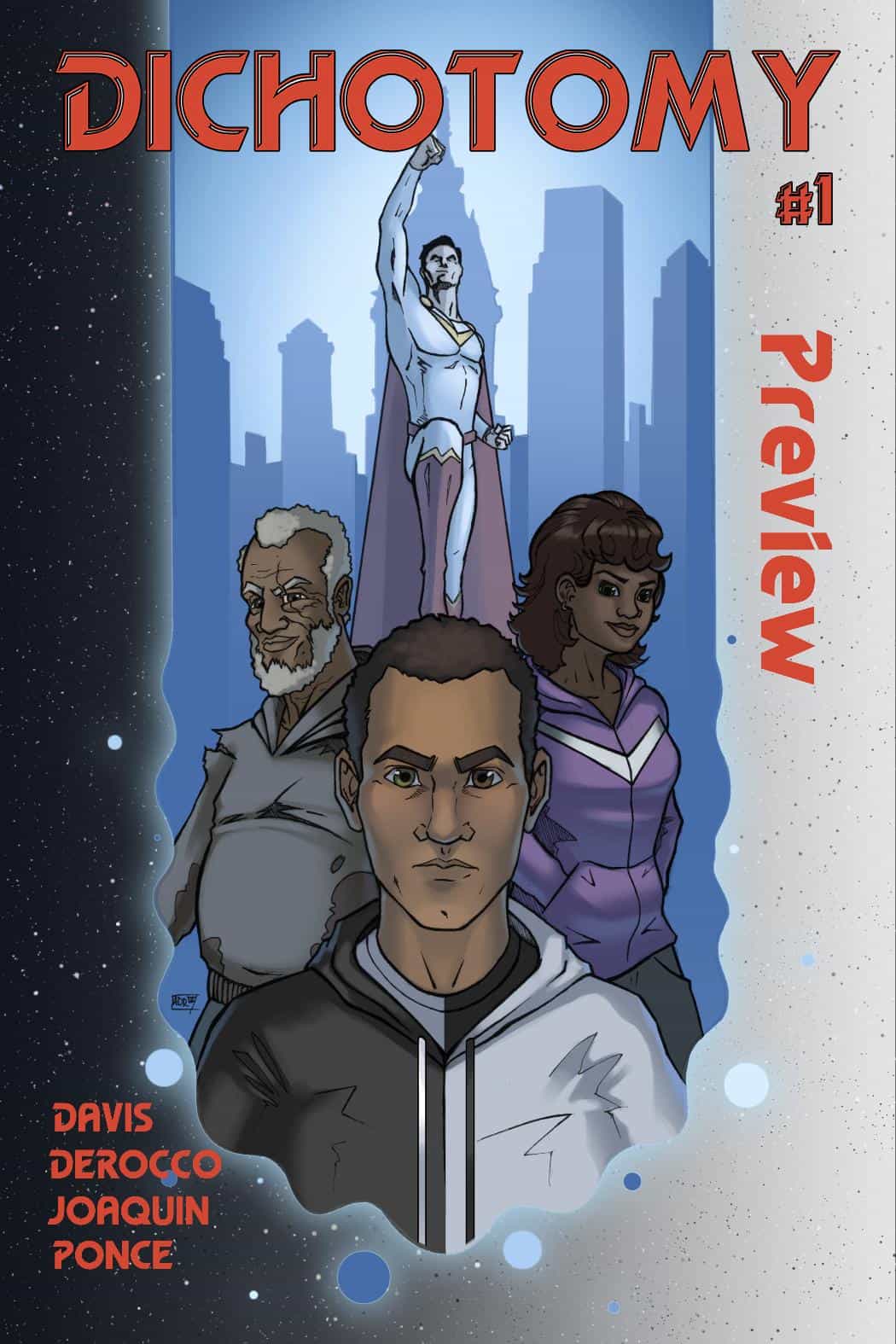Dichotomy #1

Recap
Set between two parallel universes, Marshall Hurston is living two different lives: One where he is discontent and struggling to find purpose, and another where everything is perfect, and life is carefree. As each counterpart navigates distinct world views and environments, they must decide whether to follow a path of light or a path of darkness. It’s a coming-of-age story with a multiversal twist that examines harsh societal truths and begs the question: What happens when you turn a blind eye?
Review
I really want to hammer it home before the review goes on that Dichotomy #1 is a first-time creator’s debut and is filled with a lot of potential and great ideas. While the ever-present criticism of its finer details and technical skills will remain completely honest, it comes with an incredibly important balance. When this issue is good, it is really good, but its faults can overtake reader perception. For a group of first-time creators, however, this is still somewhat impressive and conceptually promising.
The story, specifically its plot and themes, is the book’s strongest attribute. Its focus as a narrative is completely character-driven and compelling due to the thematically dynamic, if overly written, main character. Marshall Hurston’s biggest problems, insecurities, and internal struggles intersect with the book’s concept in such a beautiful yet universal way. While, yes, the overabundance of narration and amateur dialogue from Marshall is in desperate need of some editorial trimming, it doesn’t do much to damage the character’s likability or the story’s clarity. Davis is incredibly skilled at writing a story that synergizes its character and plot quite well, and it is the issue’s biggest highlight. His plot pacing is also top-notch; this issue is stuffed with a lot without ever reading as rushed.
It’s a story that does deserve to be told in the Direct Market format the book is crafted in, even if it’s held back by its overuse of words. The art in this issue isn’t able to speak for itself; the story relies far too much on the author’s prose which, as mentioned before, is not strong enough to be the book’s central pillar. It often says what is already being showed on page, or what can be inferred just from the books most basic of ideas. It’s choked with needless detail, and a lack of lettering pizzaz to make internal thoughts standout and flow well against the standard comic book speech bubble. However, the disconnect between the book’s visuals and writing is not entirely Davis’ fault.
While I hate to scrutinize the work of up-and-coming artists, the work in this book is dull. The coloring does it a major disservice as well; the visuals are unimpressive, uninspired, and lack any atmosphere or nuance in their own storytelling skills. However, it does have its moments. The artist’s paneling work is top-notch, never afraid to keep the story visually dynamic in terms of its layouts and various different panel POVs. The art’s conceptual representation of the story does bear the bones of something well-constructed, with some imagery being fantastic in concept but poorly executed due to the work on display.
When you’re reading this, you will rarely be absorbed by the art and transported into another realm. While the plot is really engaging, the visual style being so static is a constant reminder that what you’re reading is a comic book, and an amateur one at that. It’s not a death sentence for the issue, however, as the story is pretty solid all things considered. Books in the mainstream and professional market carry many of the same faults as this issue does, but what this one has that those don’t is an incredible amount of heart and personal passion.
You can tell that the story here comes from somewhere deeply honest and personal, which is partially why the themes, characters, and plotting are all so well conceptualized. I do recommend giving this a try, even if it’s not a perfect comic.
Final Thoughts
Dichotomy #1 is an incredibly mixed bag, whose notably big swing as an independent debut may be as much of a detractor as it is a notable compliment for this issue. Where the issue lacks in art or storytelling finesse, it makes up for in its conceptual roots.
Dichotomy #1: Another World
- Writing - 6.5/106.5/10
- Storyline - 7.5/107.5/10
- Art - 5/105/10
- Color - 4/104/10
- Cover Art - 4.5/104.5/10


